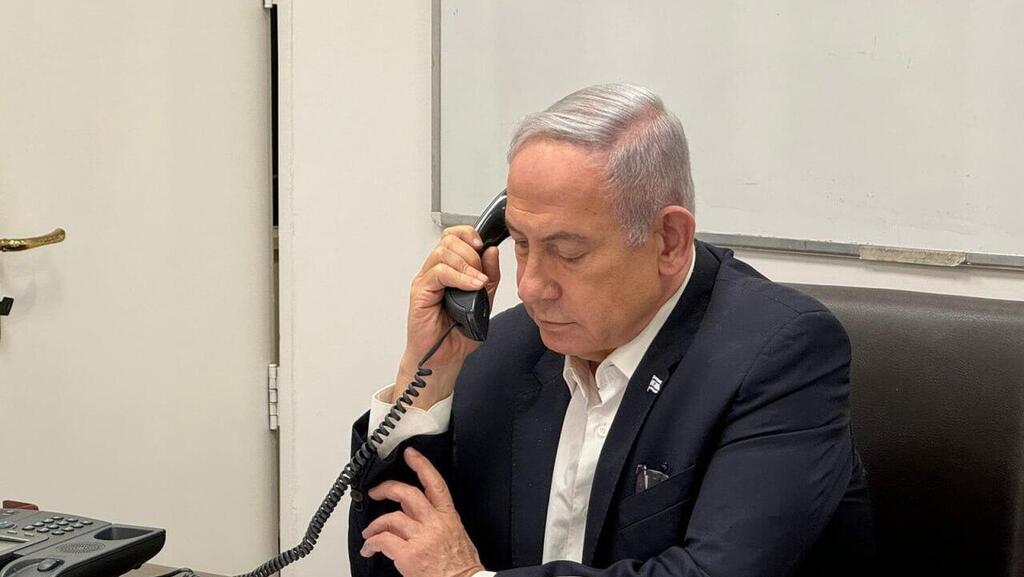Getting your Trinity Audio player ready...
Israel's cabinet ministers disagree on the timing and scope of an Israeli response to the Iranian strike on Sunday. Ministers Benny Gantz and Gadi Eizenkot pushed for a counter attack even before the Iranian drones and missiles reached Israel.
Prime Minister Benjamin Netanyahu, Defense Minister Yoav Gallant and Strategic Affairs Minister Ron Dermer objected as did the Chief of Staff. They consider such a response to be too limited, compared to other options discussed in the days leading up to the attack.
"It made no sense to respond before the outcome of Iran's attack were know," officials who were present in the discussions said. They added that if the Iranians had succeeded in causing real damage the early Israeli response would have been too limited, and if the attack had failed Israel would have been left with minimal legitimacy to respond later and the international community would have claimed that Israel had already responded.
Officials said that, even before the strike, there was consensus that Israel must respond in kind, to an attack on its territory from Iran. Ultimately all agreed to wait before any decision to strike is taken.
There are possible scenarios under consideration, amid discussion with the Americans. "We are currently adamant that we must respond," a senior official said. "The question is how to do so in the most effective way and with international legitimacy, and perhaps we could gain something in terms of normalization and an international coalition against Iran. "There are currently sleepless nights in Iran and that is as it should be," a security source said.
Israel refrained from attacking Iran because the U.S. considered the nearly perfect rate of intercepts to be an Israeli win, ending the current round in the conflict. A White House official said the U.S. would not support or join an Israeli counter attack.
Netanyahu told U.S. President Joe Biden that he must do everything to defend his country and people, which could be indication that he will insist on an Israeli response.
3 View gallery


Prime Minister Benjamin Netanyahu on the phone with U.S. President Joe Biden
(Photo: PMO)
Israel can now consider a response within days, exerting a price from Iran; It could decide on the timing and details of its response in a manner that would not require Tehran to launch another attack; or it could accept the U.S. position, but extract a diplomatic price. Either way there is an understanding that some kind of an Israeli response would be coming.




